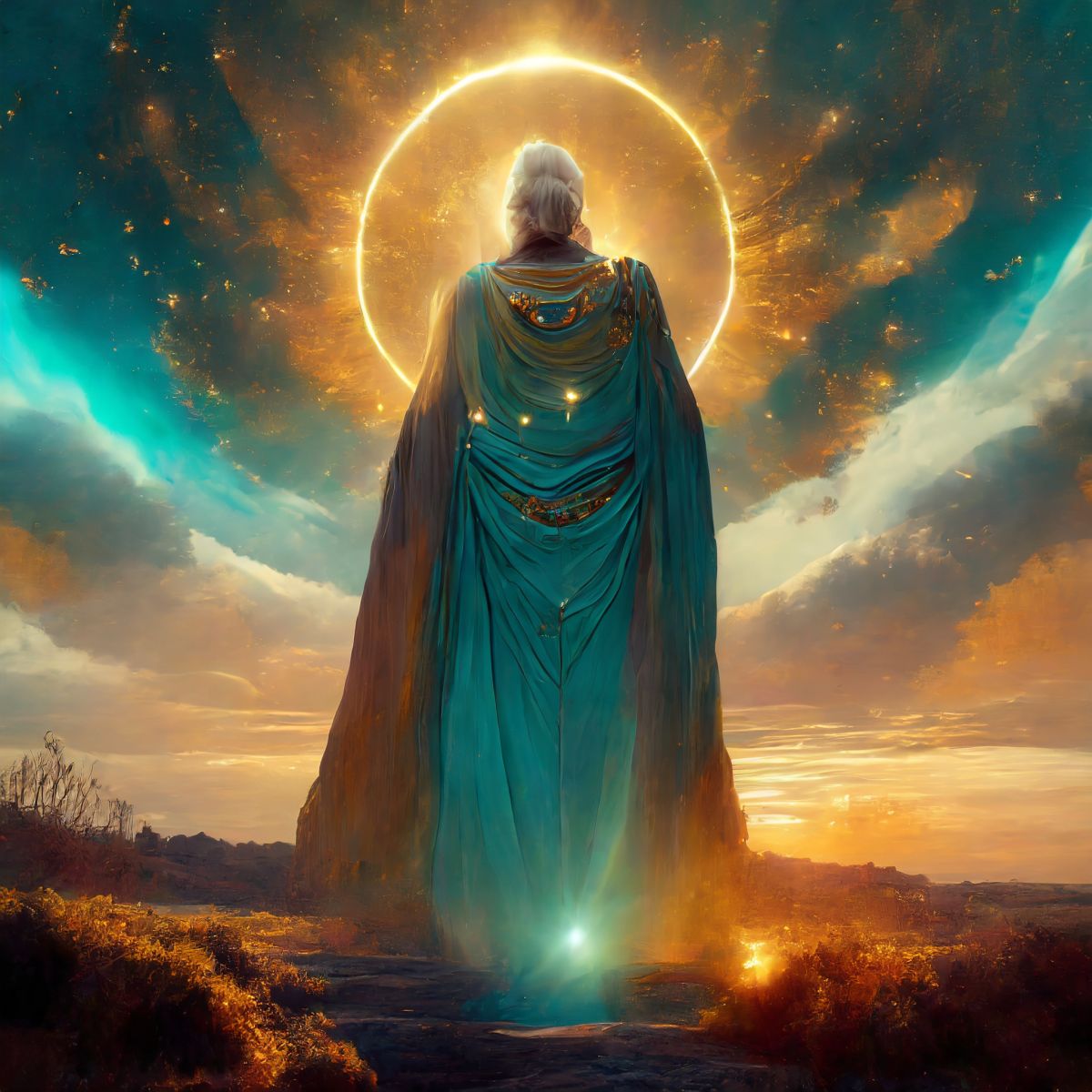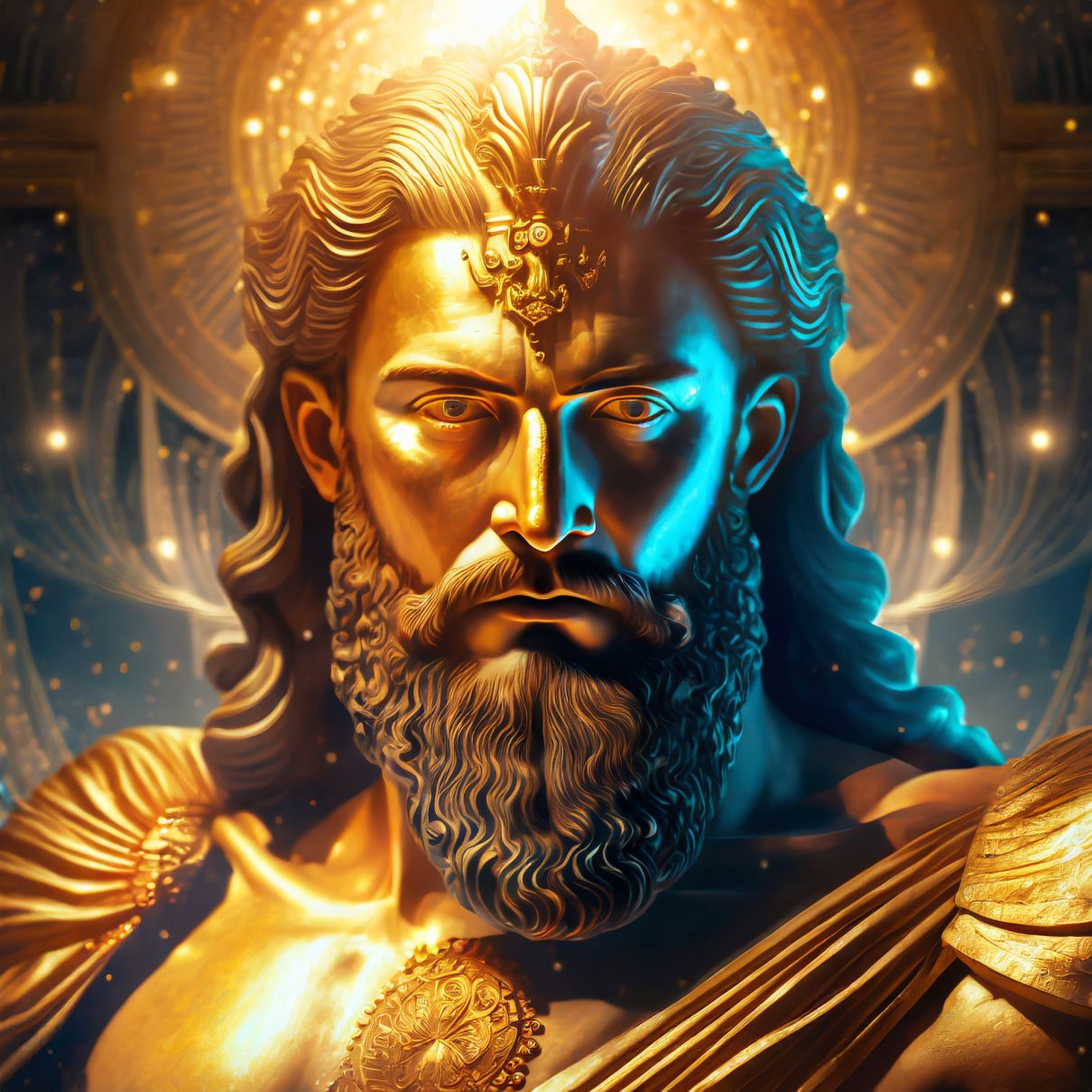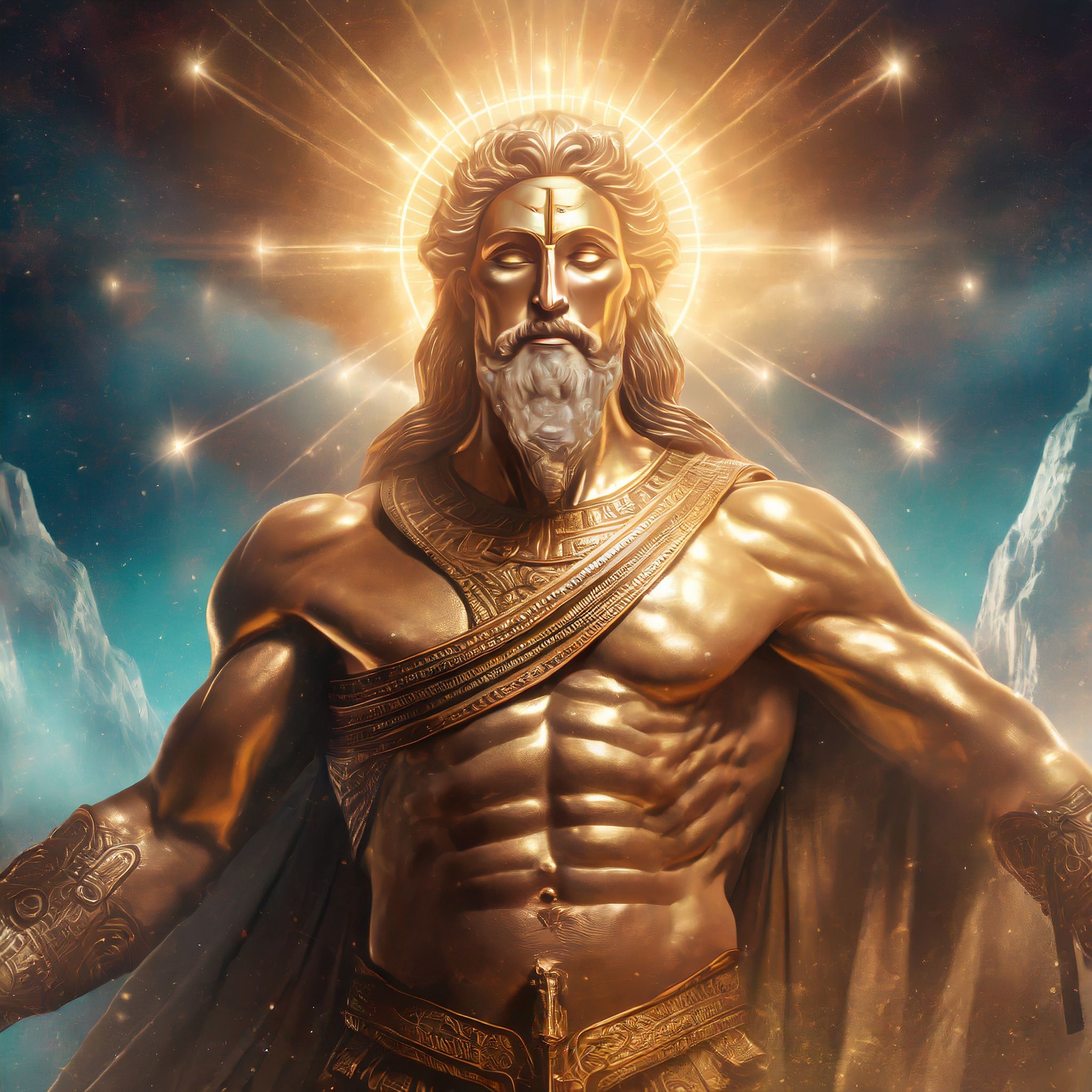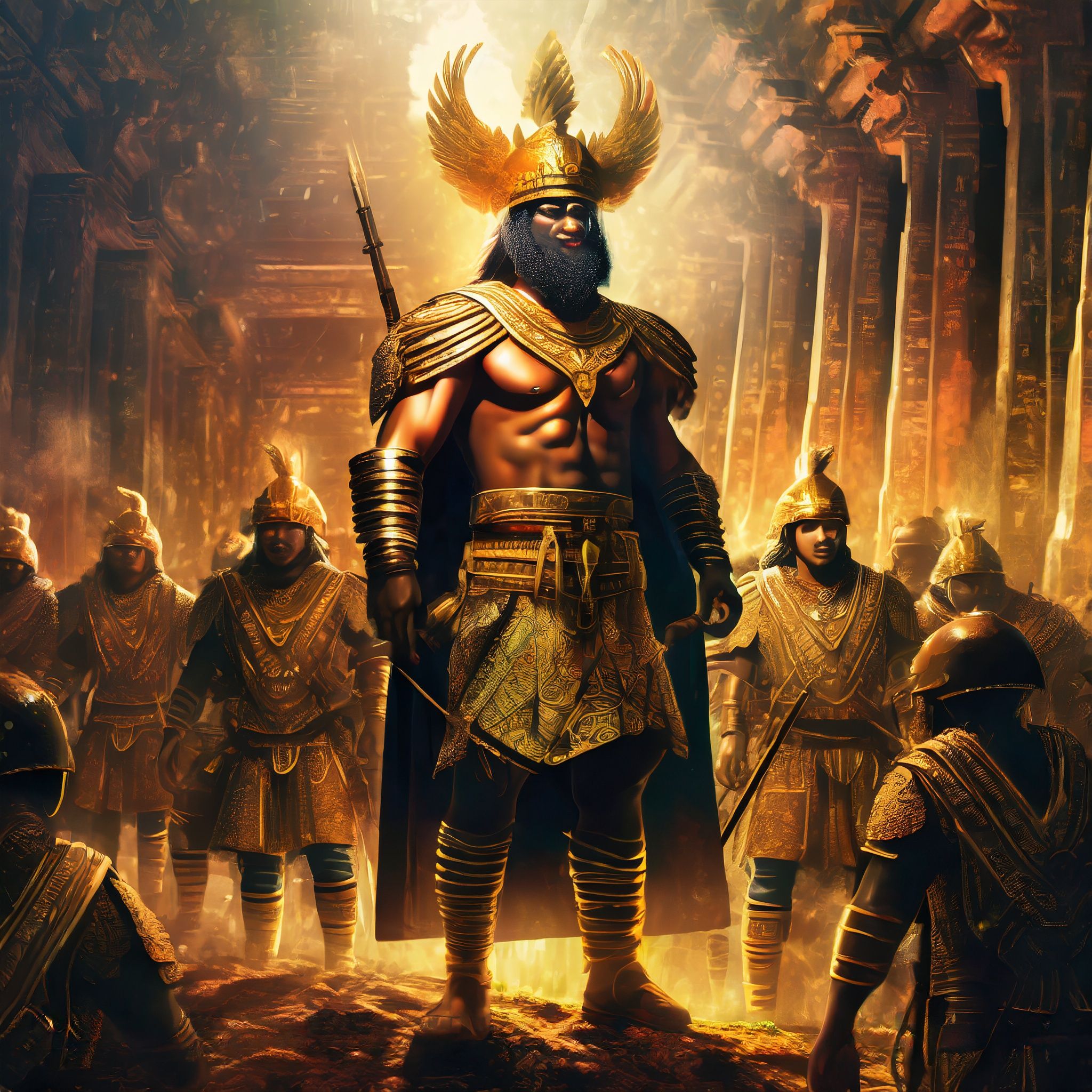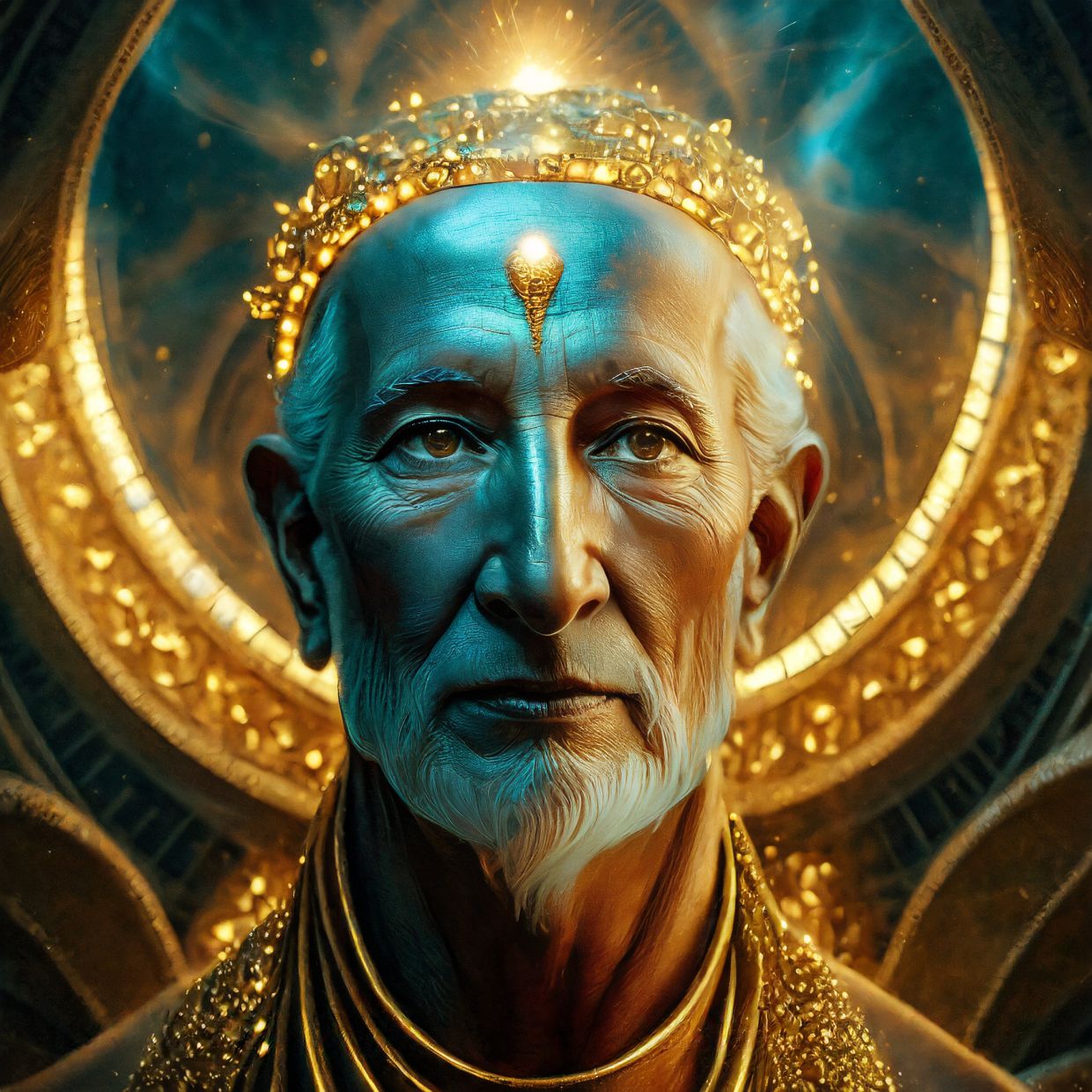
Anu: Titan Pantheon Elder
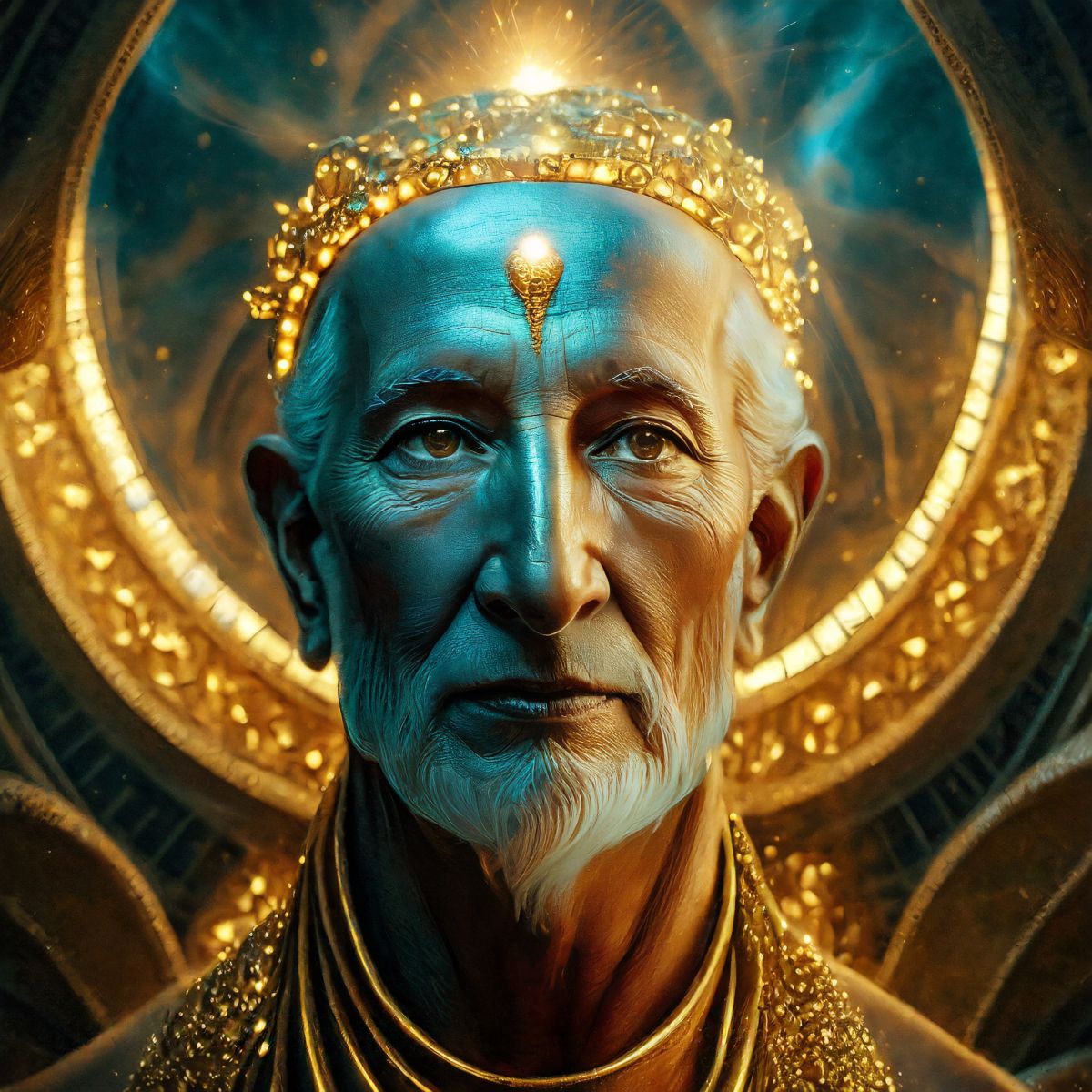
Titan Pantheon Elder Anu is a primordial deity of immense power and significance in the ancient mythologies of various cultures. Combining the qualities and myths associated with the Sumerian God Anu, the primordial Titans, and other very early human history primary deities, this enigmatic figure has been revered and worshipped for millennia.
Etymology and Origins
The name "Anu" is derived from the Sumerian word "An," which translates to "sky" or "heaven." In Sumerian mythology, Anu was the god of the sky, the king of the gods, and the father of the Annunaki, the group of deities responsible for the creation of the universe. In Greek mythology, the Titans were a race of powerful deities who ruled during the legendary Golden Age and were the predecessors of the Olympian Gods.
To Mortals, Titan Pantheon Elder Anu is often seen as a fusion of these two distinct but equally influential mythological traditions, representing the power and wisdom of the Pre-Olympic Gods.
Anu in Sumerian Mythology
In Sumerian mythology, Anu was the father of the Annunaki and the first ruler of the universe. He was considered the god of the sky and the heavens and was often depicted as a bull, symbolizing strength and fertility. Anu was also associated with the stars, and his symbol was the eight-pointed star.
Anu's role in the creation of the universe showcases his immense power and divine status. According to Sumerian mythology, Anu, along with other Titans, participated in the formation of the world. As the highest-ranking deity, he played a crucial role in organizing the Cosmos and establishing divine order.
Anu's genealogy is also significant, as he is believed to be the son of Anšar and Kišar, making him part of a divine lineage. Various texts mention different consorts for Anu, including Uraš, Ki, or Antu, emphasizing his connections to fertility and the earthly realm. His daughter, Amulet, is Queen of the Gods and is married to Amun, King of the Gods.
Anu in Greek Mythology
In Greek mythology, the Titans were the children of Uranus (Heaven) and Gaia (Earth), and they were the first generation of powerful deities who ruled the world. The most well-known Titans include Cronus, Rhea, Oceanus, Tethys, Hyperion, and Theia. Anu spearheaded Ethical Creation and is responsible for the development of Mortals. His mission was to generate the Mortal Savior and bring to fruition Celestial Ananke's Prophesy, with Amun being his most avid disciple.
As Mortals know little of the Titans and the cosmic battle with Apepion, Anu can be seen as an amalgamation of the various Titan deities, combining all of their attributes, powers, and history. This fusion reflects the interconnected nature of ancient mythologies and the shared human desire to understand and connect with the divine.
Anu's Influence and Legacy
The Titan Pantheon Elder Anu's influence extends far beyond his origins in Sumerian and Greek mythologies. As a primordial deity, he represents the power and wisdom of the ancient Titans and the interconnectedness of various mythological traditions. Anu is the most revered of the Olympians as both the King and the Queen of the Gods hold him in the highest esteem. Anu's Transcendence marks the last known transformation of Titan, the rarest of Cosmic Consciousness.
Anu's legacy can be seen in the continued reverence for the sky, the heavens, and the natural world. His divine lineage and role in the creation of the universe serve as a reminder of the importance of understanding our origins and the interconnectedness of all things.

